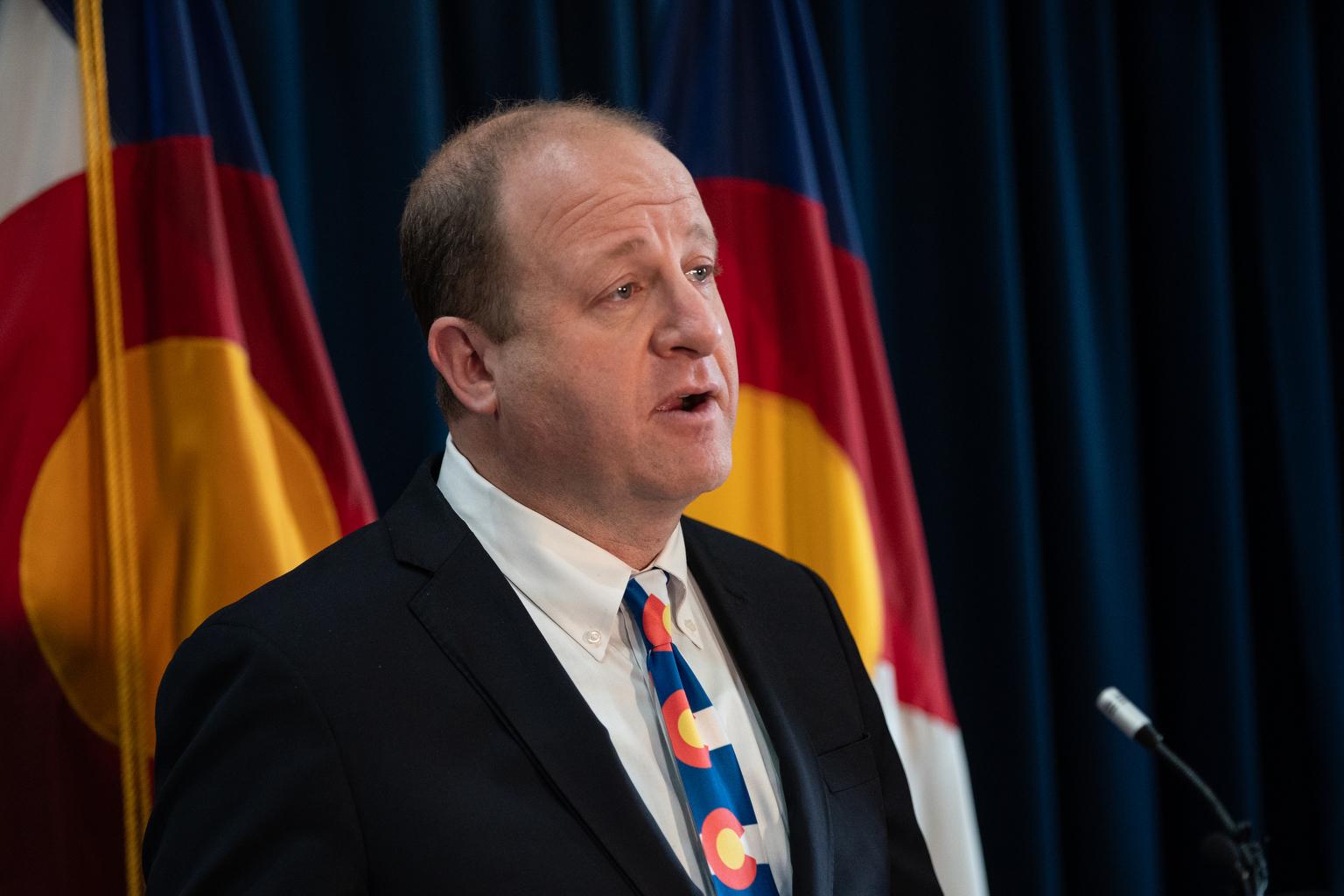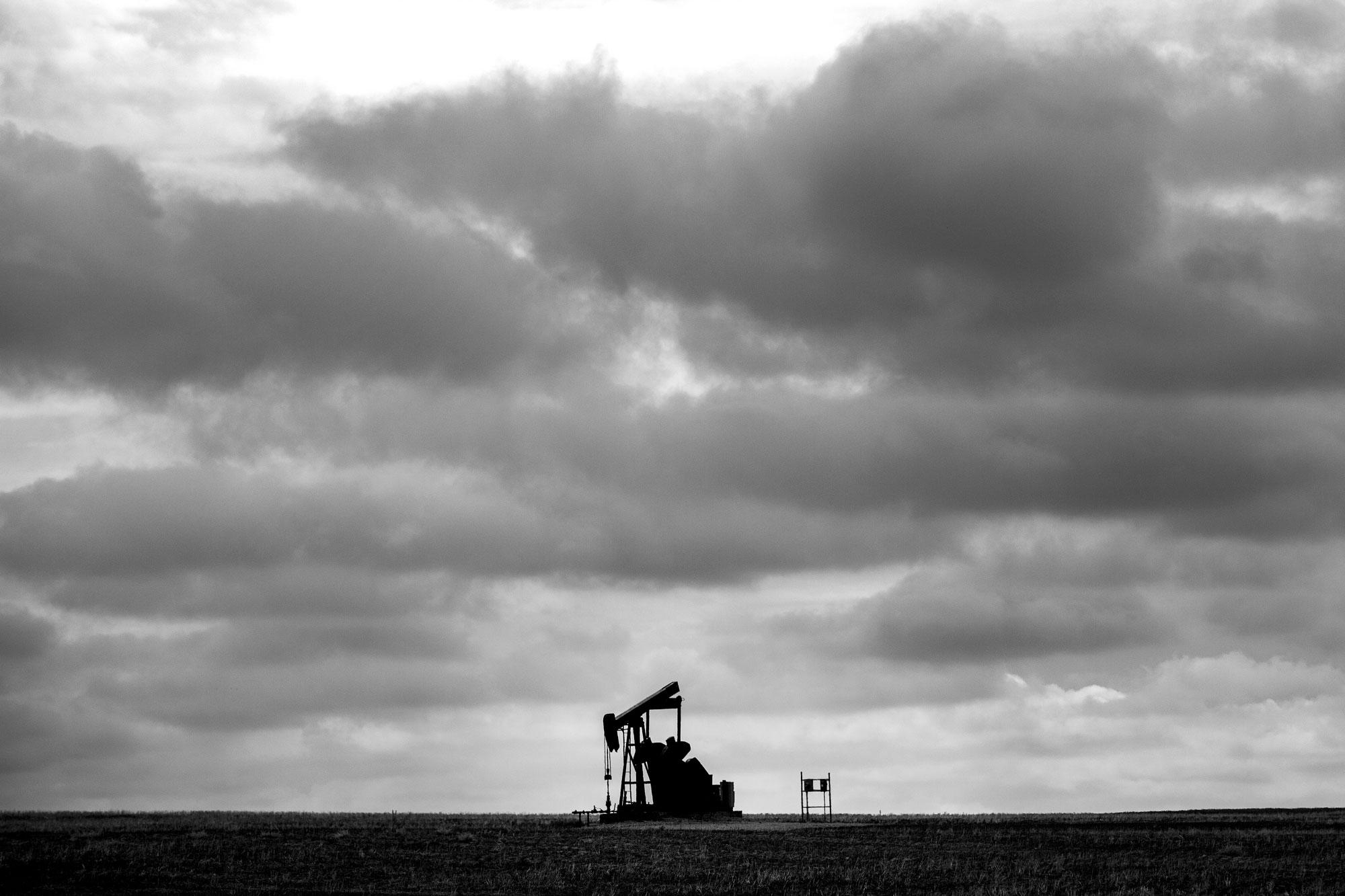
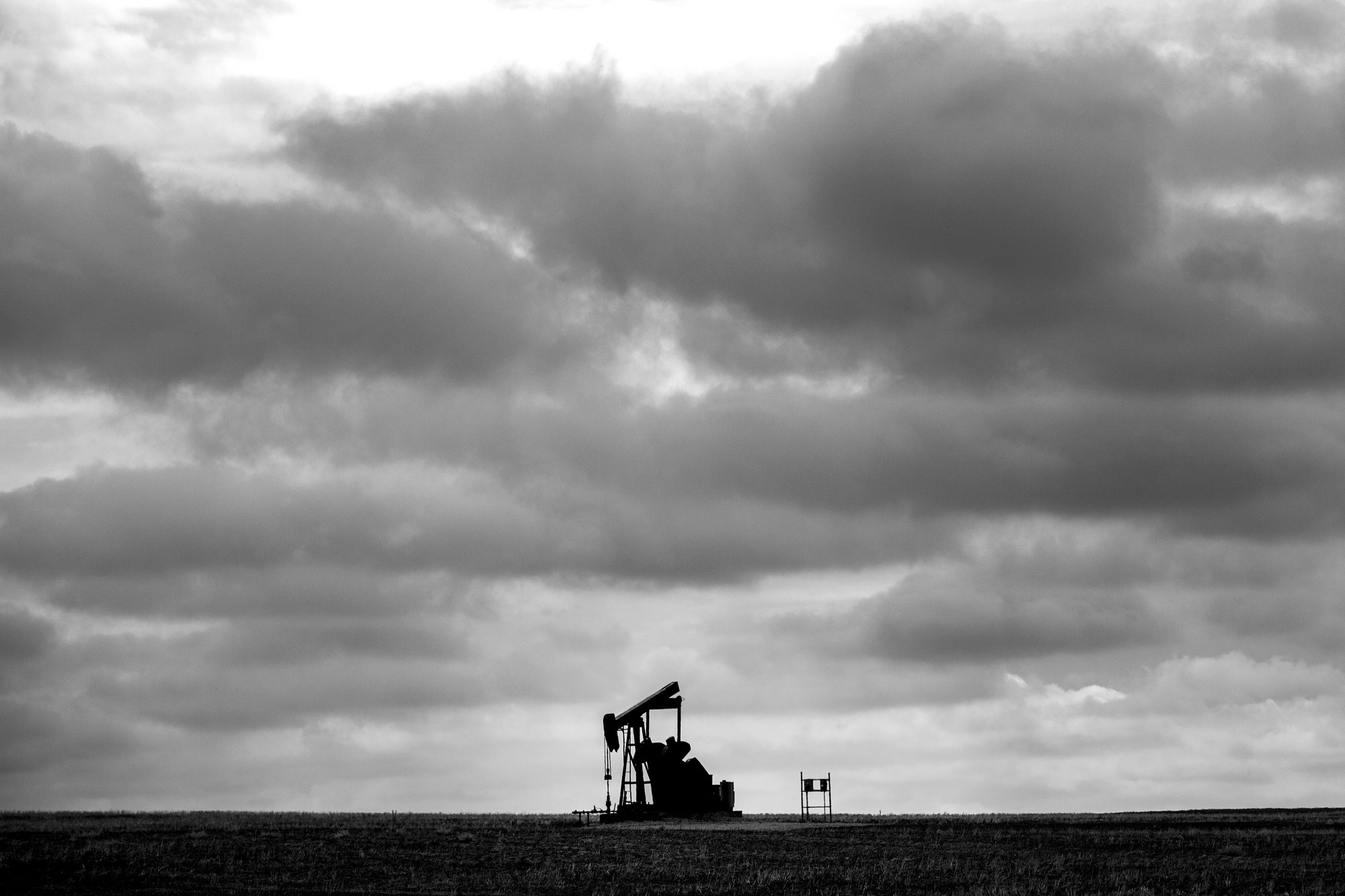
The scenario that led Ken Crumb to take on the oil and gas industry probably sounds familiar.
An explosion in a city north of Denver. A building destroyed. People suspicious of a connection to nearby fracking operations. Officials conducting an emergency investigation. Residents worried their home or their kids’ school could be next.
All of that might recall the aftermath of the Firestone home explosion in 2017. But Crumb saw it happen decades earlier.
In 1985, Crumb led a successful campaign to ban drilling in Greeley — not exactly a hotbed of anti-fracking sentiment today. The ban, which was the first in Colorado, led to a state Supreme Court decision that has been the undoing of more recent fracking bans and moratoriums in places like Longmont and Fort Collins.
“I had no idea what the repercussions would be. I had no idea of the size or the power of the oil and gas lobbies. I had no idea about any of that — and really didn't care.” said Crumb. “I just saw a possible solution and I just did it.”
This year, Democratic lawmakers have passed a bill to tilt the scales back toward local communities. The sweeping overhaul clarifies that cities and counties decide where oil and gas drilling happens in their boundaries. It also makes health and safety the top priority for state regulators. The bill is now before Gov. Polis, who’s expected to sign it.
The legislation marks an apex in a decades-long tug-of-war between local communities and the state for control of the oil and gas industry. That fight is far from over, but the bill is an enormous reset of the framework that came out of Ken Crumb’s ban.
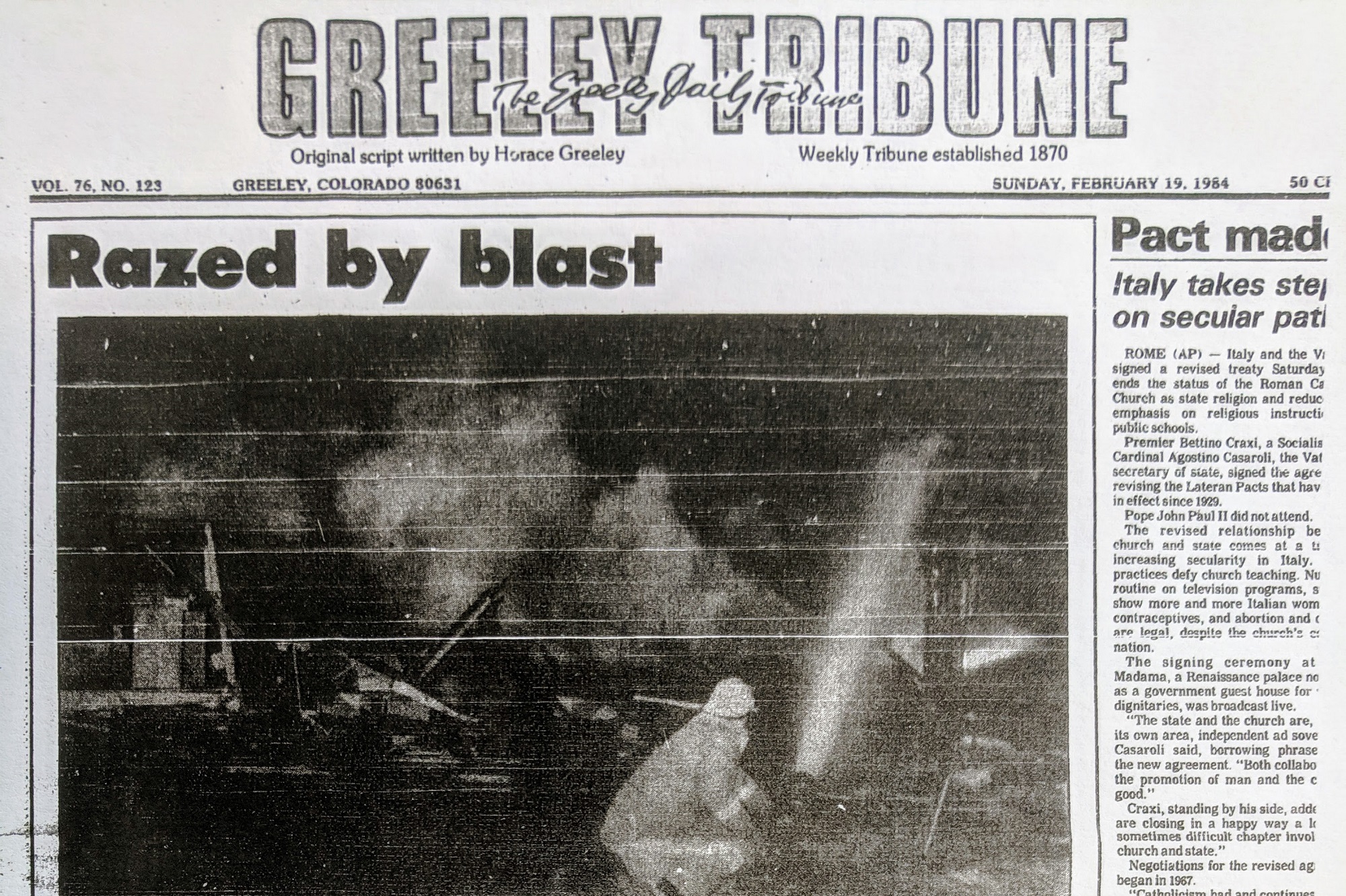
Like a lot of good stories, this one begins with a bang.
It happened in 1984 in La Salle, a town of a couple thousand people right next door to Greeley. Police Chief Carl Harvey was working that winter evening. After making a security check of Wickes Lumber showroom, Harvey pulled his car back onto the highway that runs through town.
Then, just as he paralleled the building, it blew up.
“The walls went out, but the roof was almost intact,” he recalled. “It went straight up in the air and came straight back down. And I’ve lost some hearing in this left ear because of it.”
No one was killed or injured, but the explosion shattered storefront windows and sent 150-foot flames into the night sky. It took 65 firefighters seven hours to control the blaze. By the morning, the showroom had been reduced to embers.
As for a cause, Harvey said the town suspected a gas leak. Just days earlier, natural gas had built up in an abandoned water well below the Wickes Lumber parking lot and blown a small hole in the pavement. Officials thought they had stopped the leak a few hours before the larger explosion.
The more concerning mystery was the origin of the gas. People quickly began asking if it had something to do with nearby fracking sites, which might be pushing gas into those abandoned wells. In the days afterward, newspapers detailed the fracking process, describing how it used pressurized liquid to crack shale rock and release the natural gas inside.
The result was a town that literally couldn’t trust the ground beneath its feet.
Mary Jamison, who owned and operated a barbershop in La Salle, decided to stay in her business while others around her left. She told a Greeley Tribune reporter, “There’s nothing I can do. We have to put ourselves in the hands of the experts.”
Meanwhile, those experts began an obsessive search for more leaks and any other abandoned water wells. Pipes were sunk into the ground to vent gas pockets. And the mayor demanded immediate action from state oil and gas regulators.
Crumb was working as a landscaper in Greeley at the time. After years of reading about small fires and other accidents caused by oil and gas operations, the explosion caught his attention. He decided someone needed to take action.
“The La Salle experience, I mean that was dramatic,” Crumb said. “And you know, it wasn't just the lumber yard — that was what was creepy. It came up at a lot of buildings in the area. Businesses had to be shut down or evacuated because they found more gas.”
Weeks after the explosion, employees at a bank in La Salle found gas and water bubbling up through a crack in their parking lot. Local officials evacuated 600 students from a nearby elementary and middle school.
Months later, a $70,000 consultant study concluded oil and gas drilling likely played a role in the explosion. The study did not link the incident to a specific drilling site — or to fracking — but it did call for more regulations of the industry.
While the science wasn’t definitive, Crumb said the fear was real.
His plan was simple: a complete and total ban on new drilling in Greeley. To achieve it, he taught himself how to initiate a petition and organized his neighbors to collect signatures.
While that might make him sound like a modern-day fractivist, Crumb said he never thought of himself as a part of the environmental movement. He said what motivated him was “just the safety of my neighbors, safety of my children. I liked the community and didn’t think we should be having people at risk.”
Crumb quickly found he had a talent for community organizing. His petition for the ban made the city ballot and, while he was at it, he decided to toss his own name as a candidate for Greeley City Council.
In November of 1985, Greeley voters approved the ban by a 2-to-1 margin and vaulted Crumb into elected office. He released a statement after the vote: “On oil and gas, the citizens have clearly stated that they are not willing to trade a few quick bucks for the high quality of life they now enjoy. This to me speaks highly of the character of Greeley citizens.”
Even before the election, it was clear a ban would face legal hurdles. The council had already imposed a stop on drilling and revoked four permits granted to Elmer and Roy Lundvall, two brothers with vast land and mineral holdings across the city. On Election Day, Greeley voters cemented both decisions, forcing the Lundvalls to scrap their drilling plans.
“It was a major blow to their operations,” said Ken Lind, a Greeley attorney who represented the Lundvalls, who are now deceased.
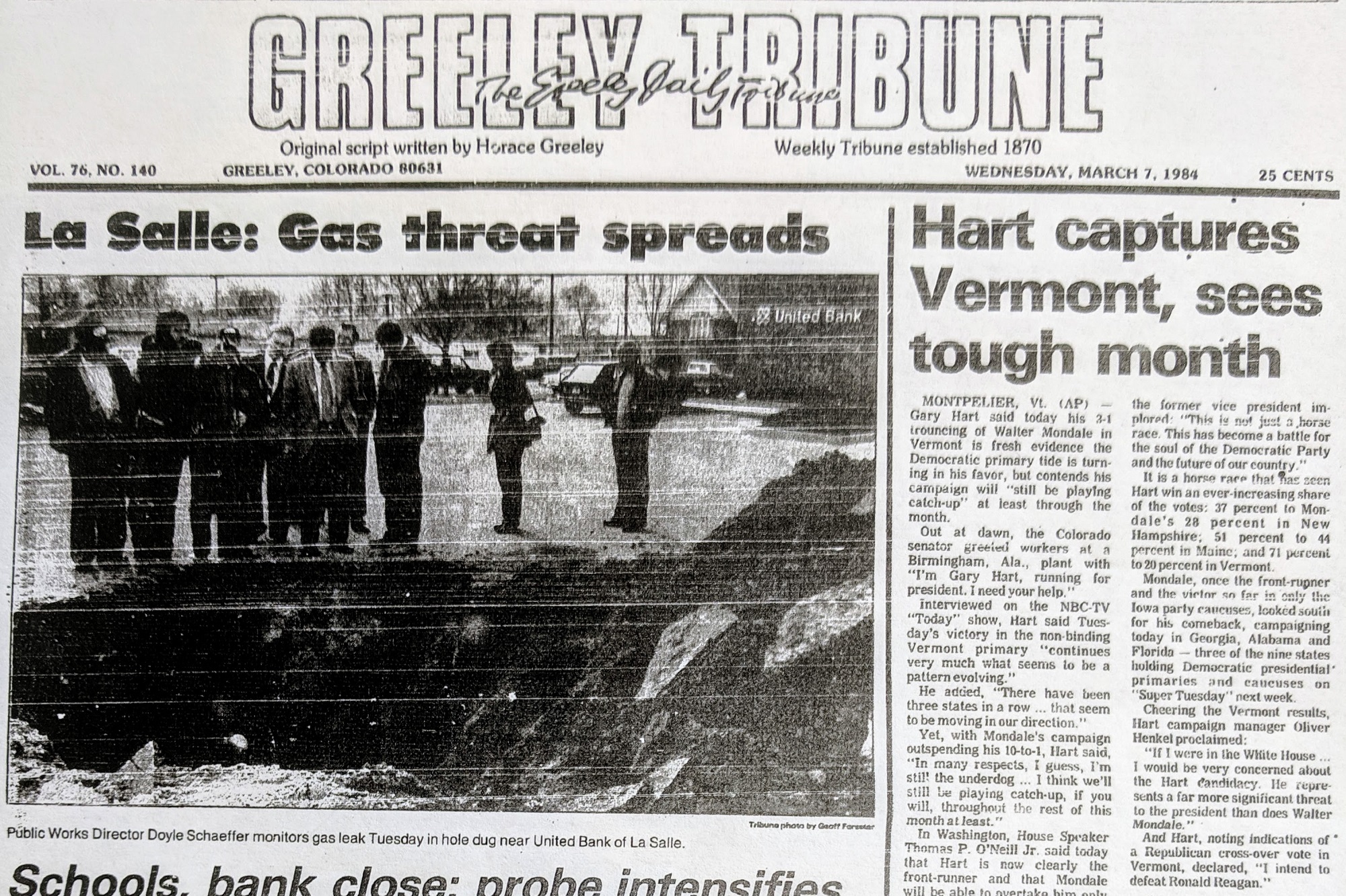
The ban was quickly challenged and eventually undone.
After the vote, Lind filed a lawsuit against Greeley City Clerk Gail Voss, seeking to overturn the drilling limit. The case worked its way up through the legal system, eventually finding its way to the Colorado Supreme Court in 1992.
In Voss v. Lundvall Bros., Lind and his colleagues pointed a 1950s law that said the state would manage oil and gas development. It set up a panel, called the Colorado Oil and Gas Conservation Commission, with a mission to “foster, encourage and promote” the industry in the state.
In Lind’s view, the law left little room for local drilling bans. It said that the state had a direct interest in oil and gas production — one that he believed preempted attempts by local governments to block access to mineral rights.
“In our opinion, it was very simple,” he said. “Here's what the courts have ruled. Here's what the statute is. There is no case here.”
Lawyers for the city challenged that 1950s law. Under the Colorado Constitution, the charter of a home-rule city like Greeley often supersedes state law. The city argued the legislature lacked the right to set up a statewide commission to regulate oil and gas, especially one designed to look out for the industry.
In the end, the court decided to toss out Greeley’s drilling ban. They reasoned that while Greeley was self-governing, a ban impacted mineral owners outside the city limits.
“Oil and gas deposits don't pay any attention to city boundaries or county boundaries,” explained Lind. “And if you allowed every city and every county to dictate rules and regulations, you will have a lot of oil and gas that cannot be recovered. And that will be a very detrimental effect to many people.”
The case wasn’t a complete loss for Greeley, though. It left room for municipal governments to regulate the industry, so long as their rules “do not frustrate and can be harmonized” with the efficient production of oil and gas.
The decision is a big reason why courts have shot down more recent drilling limits, like Longmont’s 2012 fracking ban and Fort Collins’ 2013 fracking moratorium. It’s also given the state legal ammunition to sue other local governments trying to limit drilling operations.
Matt Sura, an lawyer who often represents communities in fracking battles, said that the bill now before Polis is, in some ways, “a direct response to the Voss decision.”
The bill revises the decision in a couple of ways, according to Sura. First, it changes the mission of oil and gas regulators. Instead of “fostering” the industry, their job will be to “regulate” it to promote health and safety.
Second, it sets up a whole new regulatory framework for Colorado. Under the Voss decision, statewide oil and gas rules amount to a hard ceiling for local communities. The new rules would make state regulations into a floor local governments can add to, if they want.
“After SB 181, local governments will be able to use local regulations to require protection of public health and neighboring land uses,” said Sura. “The oil and gas industry will be treated like every other industry.”
That said, sponsors of the bill are adamant one piece of the Voss decision won’t change. Cities or counties still can’t permanently ban fracking or any other kind of drilling. Rather, their bill allows local governments to enact “reasonable” regulations as to where oil or gas development takes place within their boundaries.
It’s unclear exactly how far local governments will take that authority. In all likelihood, you’ll see a modern parallel to what happened in Greeley 35 years ago: A community will test the limits of the law, the industry will sue, and courts will decide exactly how the law plays out on the ground.
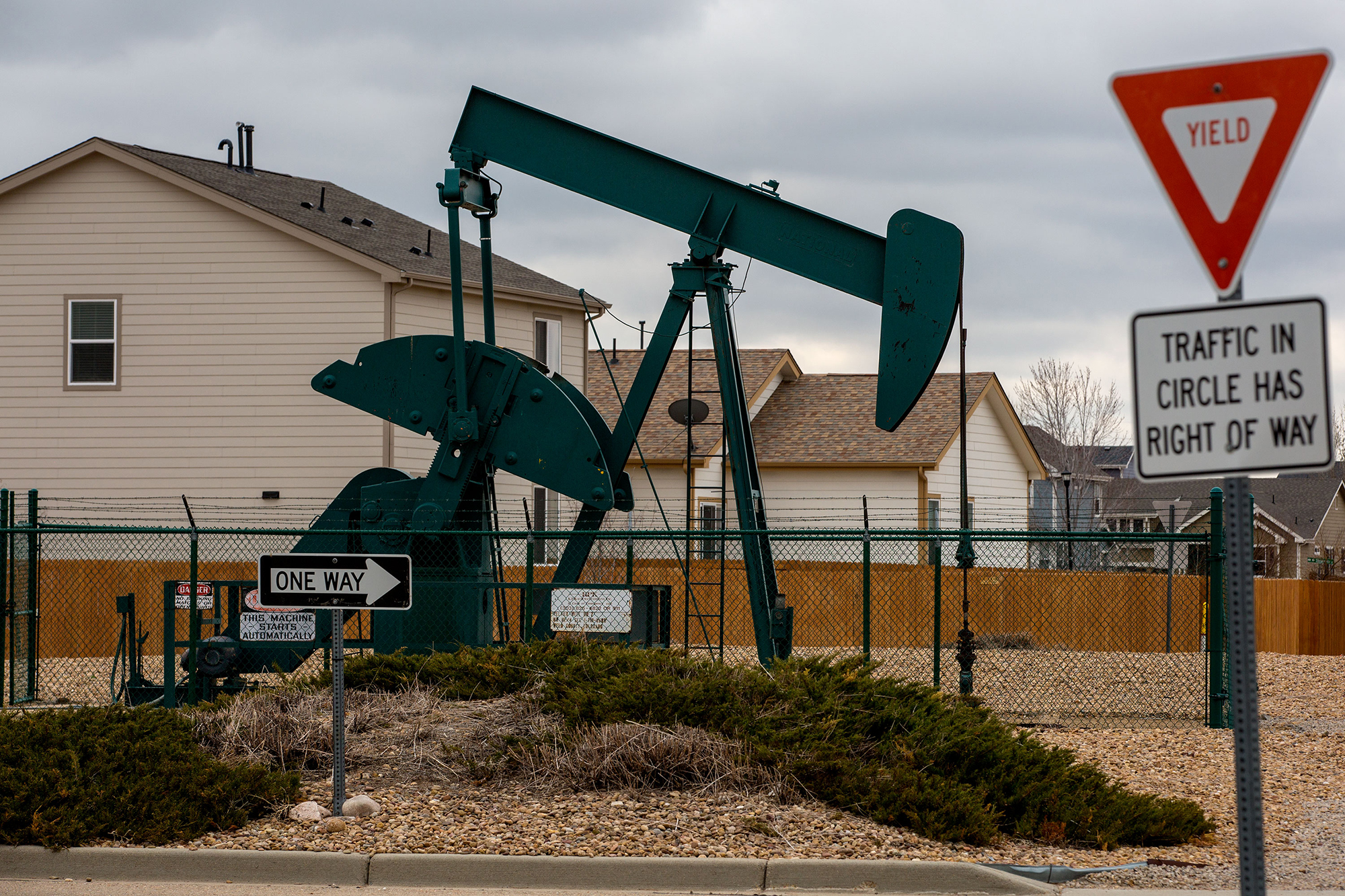
Today, Crumb, the guy who passed Greeley’s drilling ban, hopes the legislation doesn’t allow regulations that add up to de facto fracking bans.
“I really feel we need the oil and gas industry in Colorado,” said Crumb. “Not only the energy it produces but the jobs and the economy.”
A lot has changed for Crumb since the 1980s. After a long career in Greeley city government, Crumb went into business developing subdivisions along the Front Range. Today, he lives in one of them, in a hill he built for his own home. He also goes by his given first name: Lloyd.
“I just decided it was time for me to move on and create a new few years from my life, few decades,” he said.
Crumb doesn’t regret his campaign for the ban. In his view, it gave the industry time to develop safe practices for residential drilling. And years later, he thinks the state Supreme Court struck a fair compromise in the 1992 Voss decision. The case laid out a framework that attempted to balance communities' desire for safety with private property rights. As he’s grown older, Crumb said he has come to see a level of wisdom in that decision.
“The country was founded on people's yearning to own property rather than just the government and great landlords in Europe,” he said. “It's a sacred right to us to own property — and we shouldn't give it up easy.”





